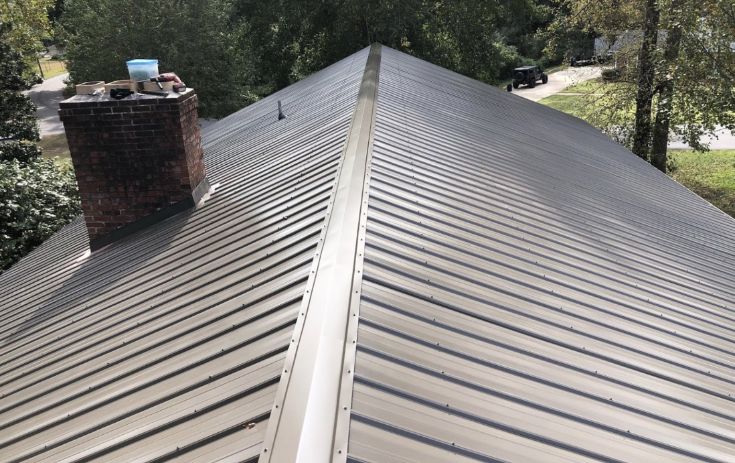Over time, small leaks can cause a lot of damage to your home. Eventually, they’ll expand and, by the time you realize what’s happened, it’s too late. What could’ve been a minor repair may turn into a very expensive fix. If you aren’t sure what’s wrong, you have two choices. You can climb up onto the roof and try to figure it out or you can call a reputable roofer in Atlanta to come out to the house and check for you.
While there’s nothing wrong with checking for leaks on your own or with a friend, there are some things you need a professional roofer in Atlanta to do for you. Half the time, homeowners don’t know what they’re looking for when they’re searching for leaks. The rest of them may be able to spot the issues but have no idea how to fix them. There’s nothing wrong with that.
Unless you’ve been trained as a roofer, there’s no way you would’ve learned how to track down roof leaks. Here, we’ll briefly talk about some of the tricks you can use to find small leaks. We’ll also explain when it’s time to call a professional roofer to keep both you and your roof safe.
Are There Obvious Leaks in Your Ceiling?
If you’re lucky, the leaks in your home will be obvious or easy to find. If the leak is bad, it may be hard to miss. You’ve probably walked by the brown spot a thousand times since the leak started. When it’s time to get the roof repaired, you really shouldn’t wait. By the time your roofer in Atlanta detects the leaks, they’re probably big enough that they’ll be costly to fix.
Check each room, both the walls and the ceiling, to find any leaks. You’ll be looking for water spots, black spots, or mold. By the time you see the black spots or mold, you may be in for an expensive repair. To avoid this from happening, call an experienced roofer in Atlanta to come and examine your house for leaks.
Check for Source of Leaks with Garden Hose
One easy way to look for the source of your leaks is by using an ordinary garden hose. This is something you’ll need help with. Perhaps your son is old enough to help. Or you may have a friend or neighbor help. What you do is carry the hose up onto the ceiling and let the hose run directly next to or on top of the spot where you saw the leak.
Have your partner wait downstairs near the water stains or suspicious cracks on your walls or ceiling. If they see the water dripping, then you’ve likely found the source of your leak. Keep checking until the whole roof has been examined.
If there are leaks, call a seasoned roofer in Atlanta to come out and take care of them for you. It’s not a good idea to try to fix your roof on your own. You could cause further damage and make it harder – and more expensive- to fix.
Look for Stained or Rotted Wood
If you had noted that the house was spouting leaks for weeks or months, you’re risking further damage to your home. If a leak is left to grow, so will the need for repairs. You need to check to see if there’s any stained wood or rotting wood where the toilet had been. If so, your roofer in Atlanta will have to take extra time to identify the leak and determine how bad they are. This is time they could’ve spent making your much-needed repairs.
Call an Experienced Roofer in Atlanta to Make Necessary Repairs
If you suspect you have leaks up on your roof but aren’t sure where they are, you need help. Call our professional roofers in Atlanta right away. First, they’ll check to see what the possible issue is. Once they locate the leaks, they’ll let you know how many areas need to be repaired. They’ll also let you know how much they think it’ll cost to fix your roof.
Keep in mind, that roof repairs are not cheap. Whatever you can do to avoid damage to your roof, try it. Doing the extra work today can save you a ton of money later. Call and speak with one of our representatives right now. We’ll send someone out to take a look at your home.


